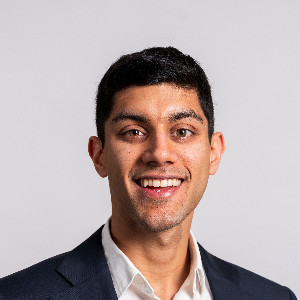Hello,
I've solved around 70 cases in my prep (spread across different years, i.e. for internship).
I will be interviewing with MBB for FT positions in a month.
What is the “end game” - what can I gain from cases at this point?
Thank you!
Hello,
I've solved around 70 cases in my prep (spread across different years, i.e. for internship).
I will be interviewing with MBB for FT positions in a month.
What is the “end game” - what can I gain from cases at this point?
Thank you!


After 15 years in the industry, I am still learning. I still learn from projects and I still learn from cases.
If after 70 cases you think you have learned all you have to learn and nothing surprises you anymore… well, it just feels that you must be doing something fundamentally wrong.
Coming up with a really objective-driven structure is not easy. Understanding what is the most efficient way to do a market sizing is not easy. Understanding and considering the nuances of an industry is not easy. Speculating about the root causes or the drivers of any situation is not easy.
I would've understood if the question was if 70 was enough, if you should already feel comfortable with that number (the answer is: don't know without giving you a case). But the wording suggests you don't know where you can improve. Which you should. Particularly after doing so many cases…
- Are you using always the same frameworks? Or a buckets approach? Are you MECE?
- Can you do market sizing: top down, bottom up, top down and bottom up simultaneously?
- Can you read exhibits efficiently and always communicate insights in a way that help movign forward towards the case objective?
- Is your communication clear?
- Are you able to effectively clarify context and goals, and understand the nuances of that context and goals?
- Are you able to effectively engage the interviewer, creating a positive interaction?
- Are you able to effectively think about industries of which you know nothing about? Or where the objective is a bit atypical?
If you don't know where you need to improve… do one more case with an experienced partner, that can help you identify improving areas.

Hey there,
Quality > Quantity. 70 cases mean nothing if the cases you worked on are bad quality, the case partners provided faulty feedback, you did not incorporate their feedback, etc.
The end game for the prep should be that you
This all culminates into two things:
On top, do not forget that there is a fit part as well (PEI for McKinsey), which counts as much as the case. Invest some time drafting and rehearsing answers for the most common questions, and especially invest a couple of hours to draft strong PEI stories.
Cheers,
Florian

The number of cases you've done says almost nothing.
Actually, in my experience coaching people who have done 70+ cases here on PrepLounge, just a tiny minority of them get an offer without starting from scratch to work on fundamentals.
Indeed 70 cases are a lot, and if you prepared without clarity on how to structure and communicate top-down, you only worsened your performance for 70 cases.
My first suggestion is to focus on fundamentals:
The second suggestion is to review the cases you found more difficult.

Hey there,
It's important to do several mock interviews especially with consultants or ex-consultants (ideally from the companies you are applying to). if your prep has been mainly offline (you crunching case studies), consider putting yourself in a full interview setting with peers or coaches to:
1- practice the full interview setup, not just the case
Remember that interviews also have a fit or PEI section and these are as important to practice for.
2- solve cases under pressure and answer unexpected questions
once you have done various mocks, you know your personal stories better and you aced the case part, you're ready to go!
Mario

I agree. Do a few interview simulations with former interviewers if you can. That way you will notice where you might get caught off guard and can fill your blind spots accordingly. It also helps to get the feel for time management and performing under increased pressure.

Hi there,
More is not always better.
You can burnout, become overly robotic, stop enjoying casing, etc.
I highly recommend you get a professional to case you to see what's missing - that is, a current or ex consultant from MBB that you know or a case coach.
Per casing is great, but the feedback/intensity generally stays at the intermediate level.

For someone with extensive practice such as yourself, there are a few things I would suggest:
1. Balance the amount of cases you from now up until interview time between too many (burnout, potential for being “robotic”) and not enough (forgetting some of the small things you knew before, not having practice for the specific firms you interview for)
2. Ensure the other aspects of your preperation are covered (e.g. resume is airtight, you feel good about the behavioral questions, you have solid questions to ask)
3. Make sure you feel good about the practice you have done - if they are all with peers, there is a tendency that all inexperienced candidates miss the same things, as others have pointed out. This can be avoided by doing a couple practice sessions with either a professional coach, a current/former consultant, or even peers who have gone far in the process before (in descending order). One approach here is to reach out to people on LinkedIn or friends of friends to ask for practice time / advice, especially if a professional coach is out of reach $-wise.
Best of luck!

There's no end game where you have only embarked on the journey of learning and refining the consultant toolkit. Personally, I feel that is an important mindset to have as you prepare. Don't pressure yourself around whether you are doing enough or not and really think of it as practice to being a better MBB consultant. Good luck!

The end game for prep is getting the job/performing well in the interview.
I will say practicing 70 cases can mean a lot of things. Did you practice it all by yourself in front of a computer screen? Were all 70 cases practiced with others? Did you get the opinion of a coach or someone currently at the firm you are interested in? Number of cases practiced on its own is a meaningless metric beyond 25 unless you are truly practicing the correct way.

Hello,
This highly depends on where you are with your case quality - it all depends on how you approached your 70 cases, what you retained from them, and how your casing skills developed as a result. At your stage, I would probably think about what it is you want to be improving: what are the parts of the case you find the most difficult, or get feedback that you need to work on the most? I would isolate those components, and focus your prep on them. If you feel like you have a lot of prep under your belt and are not sure how to develop further, I would recommend doing a session with a coach (or a friend who is a consultant / very experienced with case interviews) so you can get some good feedback on your performance. Feel free to message me if you'd like any more guidance, and best of luck!













